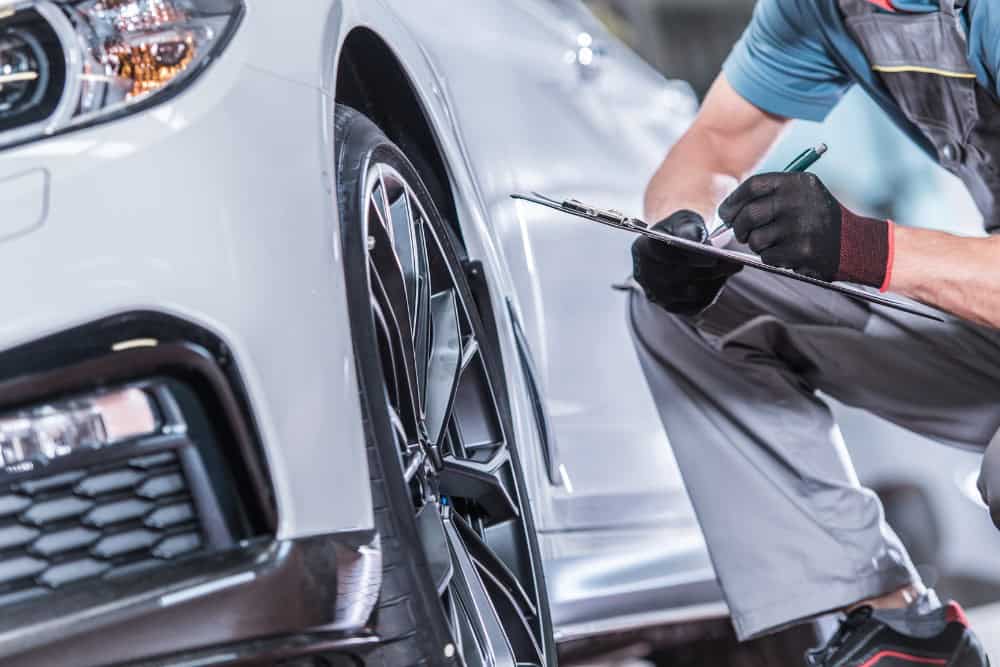
Buying a used car can be an exciting process, but it also comes with risks, especially when it comes to identifying flood damage. Flood-damaged cars may look fine on the surface, but underneath they can hide severe issues that could cost you thousands in repairs. In this blog, we will guide you through the key steps to identify flood damage when buying a used car and explain why buying from a reputable dealer is your safest option.
Flood damage occurs when a vehicle is exposed to large amounts of water, usually as a result of natural disasters like hurricanes or heavy rainstorms. Floodwaters can damage a car’s engine, electrical systems, and interior components, leading to safety concerns and a greatly reduced lifespan for the vehicle. Identifying flood damage when buying a used car is crucial to avoid purchasing a lemon that could become a money pit.
If you’re in the market for a used car, it’s important to be vigilant for any signs of flood damage. While a fresh coat of paint and a clean interior might make a car look great, there are often tell-tale signs that can reveal a vehicle’s troubled past.
One of the easiest ways to identify flood damage when buying a used car is by checking for a musty or moldy smell. Water that enters the car can get trapped in the seats, carpet, and upholstery, leading to mold growth. Sellers may try to cover this smell with air fresheners, but if you notice an overly strong scent or a damp odor, it could be a sign that the car has experienced flood damage.
Carefully inspect the interior for any water stains, mud residue, or discoloration. Common areas where flood damage may be visible include under the seats, inside the trunk, and around the edges of the carpet. Water tends to leave behind a residue or staining, particularly if the flooding involved muddy or contaminated water.
Rust can be a major indicator of flood damage. When buying a used car, check for rust in unusual places like under the seats, on the pedals, or around the door hinges. Rust on metal parts inside the cabin is a red flag, as these areas typically do not come into contact with water unless the car has been submerged.
Flood damage can wreak havoc on a car’s electrical system. Identifying flood damage when buying a used car involves checking that all the electronics are functioning properly. Test the lights, power windows, windshield wipers, and dashboard features. If anything seems inconsistent or if the electronics are malfunctioning, it could be due to water exposure.
When buying a used car, it’s important to look under the hood for signs of flood damage. Inspect the engine bay for any dirt, mud, or waterlines. Floodwater can damage crucial engine components, and any visible signs of mud or residue could indicate that the car has been underwater. Additionally, check the air filter for signs of water damage—it should be dry and clean.
One of the best ways to identify flood damage when buying a used car is by obtaining a vehicle history report. A reputable dealer will often provide this report, which can reveal if the car has been in a flood or if it has a salvage title due to water damage. Services like Carfax or AutoCheck can provide detailed information about the car’s past, including any reported incidents of flood damage.
When it comes to buying a used car, choosing a reputable dealer over a random private seller can save you from a lot of headaches. A reputable dealer is more likely to have inspected the car thoroughly and will often provide warranties or guarantees. Here’s why buying from a reputable dealer is the safer choice:
Even if everything looks good on the surface, it’s wise to have a professional mechanic inspect the car. Identifying flood damage when buying a used car can be tricky, and an experienced mechanic knows exactly where to look for signs of water exposure. A professional inspection can give you peace of mind and prevent you from buying a car that will have costly issues down the line.
Unfortunately, some sellers try to hide flood damage to make a quick sale. Be cautious of deals that seem too good to be true or sellers who are unwilling to let you take the car for an inspection. Sellers who pressure you to make a decision quickly may be trying to offload a car with hidden issues. Always take your time and do your due diligence to avoid purchasing a flood-damaged vehicle.
Identifying flood damage when buying a used car is critical to avoid ending up with a vehicle that has serious hidden issues. Be sure to check for musty smells, water stains, rust, and electrical problems. Always obtain a vehicle history report and consider buying from a reputable dealer who stands behind their vehicles. By following these guidelines, you can ensure that the used car you purchase will be safe, reliable, and free of flood-related issues.
If you need more guidance on buying a used car or suspect that your vehicle has flood damage, contact Ralph’s Transmissions for expert advice and services. We are here to help you make informed decisions and keep your car running smoothly.